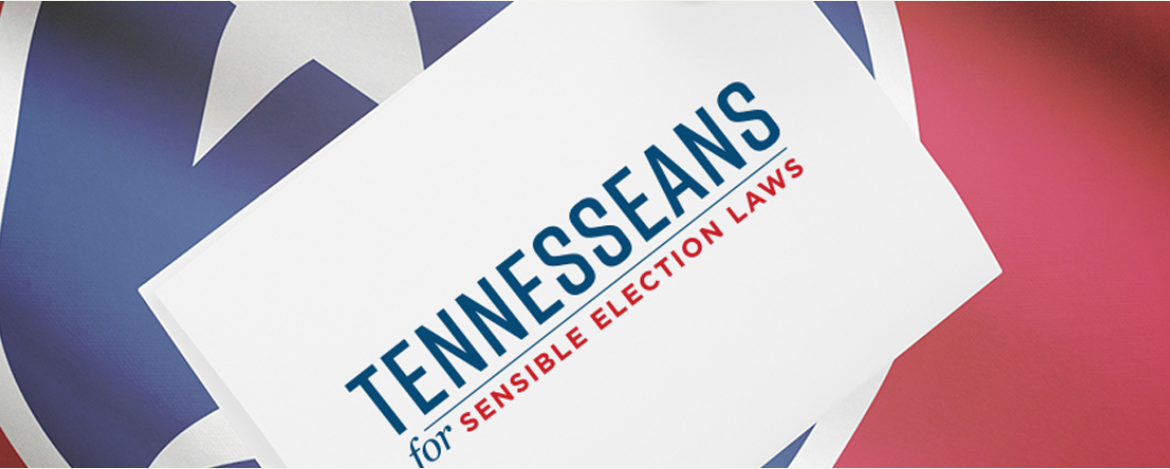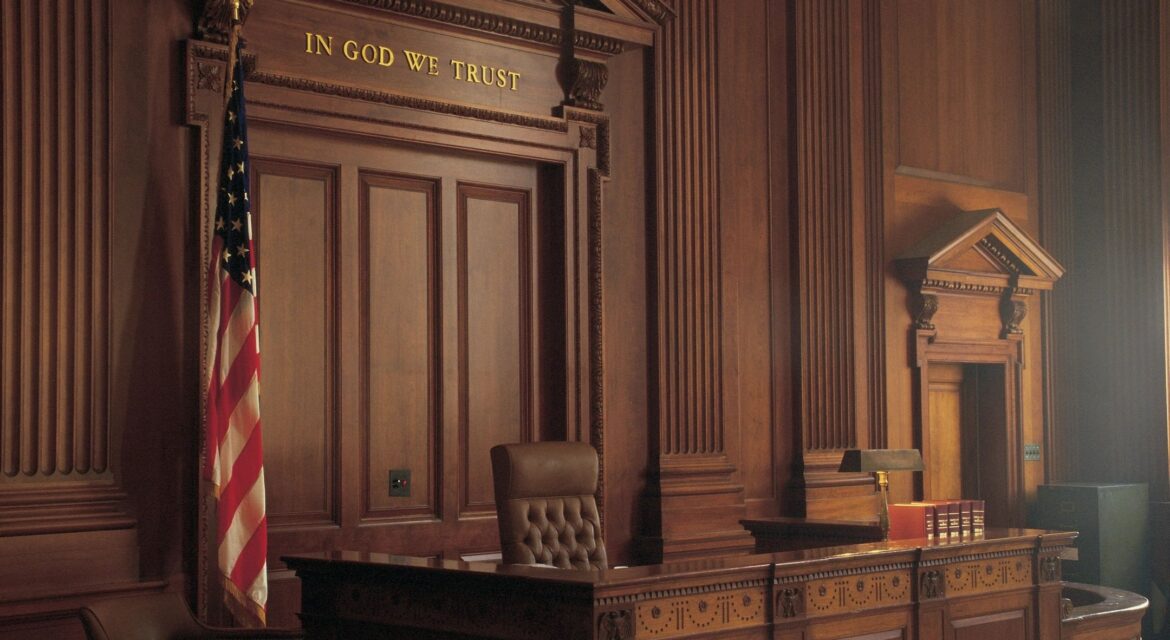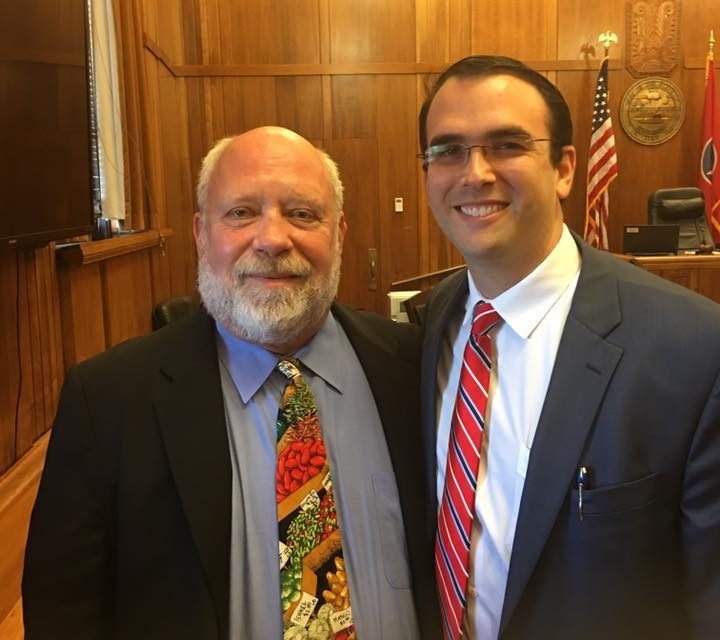By Tennessee First Amendment, Speech Defense, and Anti-SLAPP Lawyer Daniel Horwitz:
If you woke up this morning feeling freer to speak your mind, there’s a reason: A little-noticed law with huge free speech benefits takes effect today. As of July 1, 2019, the “Tennessee Public Participation Act”—Tennessee’s first-ever meaningful Anti-SLAPP law—became effective and affords those who are sued for their speech a host of critical legal benefits.
Because litigation is often prohibitively expensive, bad actors can often intimidate critics into silence by threatening or filing baseless speech-based lawsuits asserting claims like defamation (libel or slander), false light invasion of privacy, business disparagement, or other questionable torts. When faced with the prospect of having to spend tens (if not hundreds) of thousands of dollars in legal fees to defend one’s legal right, for instance, to leave an unfavorable review of a business, self-censorship can also become an extremely attractive proposition. The result of such self-censorship is to undermine both individuals’ right to free speech and the public’s right to hear and receive information.
It is important to note that the overwhelming majority of defamation and other speech-based lawsuits are not filed because a person has suffered an actual legal injury. Instead, their purpose is to punish people for lawfully exercising their right to speak freely about a topic that the suing plaintiff wants to censor. Given the cost of litigation, historically, such lawsuits have also been disturbingly effective.
To provide a counterbalance to the financial threat posed by bogus defamation lawsuits, laws aimed at deterring “Strategic Lawsuits Against Public Participation” (Anti-SLAPP laws) afford speakers a number of significant legal protections, all of which are critical to safeguarding free speech and promoting the free exchange of information and ideas. First, Anti-SLAPP laws help deter bad actors from filing baseless lawsuits against people for lawfully exercising their free speech rights in the first place. Second, the best Anti-SLAPP laws provide people who are sued for exercising their First Amendment rights an efficient and expeditious means of getting frivolous speech-based lawsuits dismissed quickly. Third, Anti-SLAPP laws commonly provide a mechanism to punish abusive litigants and attorneys who file baseless defamation claims with significant monetary sanctions. Fourth, Anti-SLAPP laws frequently give people who are sued for exercising their free speech rights the right to recoup whatever attorney’s fees and court costs they incurred for having to defend against a meritless speech-based lawsuit.
Happily, beginning today, Tennessee now boasts an Anti-SLAPP law that affords speakers all of these benefits. Until today, Tennessee only had a limited Anti-SLAPP law that was narrowly restricted to statements made to government agencies. Fortunately, though, earlier this year, Tennessee enacted the “Tennessee Public Participation Act” to protect Tennesseans’ right to free speech, which became effective July 1, 2019. Thus, from today onward, the Randy Rayburns and Linda Schipanis and Bari Hardins of the world can now wield a powerful protective weapon against bad actors’ efforts to censor and intimidate them through frivolous speech-based lawsuits.
The Tennessee Public Participation Act has dramatically expanded the scope of speech that receives heightened legal protection in Tennessee. Under the Act, every “communication made in connection with a matter of public concern”—a term that is defined broadly and expressly encompasses statements involving issues of “health or safety” and “community well-being”—”that falls within the protection of the United States Constitution or the Tennessee Constitution” will come within the ambit of the law’s protection. In other words: Most statements made by citizens within the State of Tennessee—including social media posts and blog posts—now receive heightened protection against speech-based lawsuits, including defamation lawsuits, false light invasion of privacy lawsuits, or lawsuits that assert claims such as “defamation by implication or innuendo.” Defendants who are sued for claims such as “abuse of process” or “malicious prosecution” will frequently enjoy heightened protection under the Tennessee Public Participation Act as well.
Censorship has always been rampant, and it comes in many forms—from firing people who speak out about misconduct in the workplace to libel and slander lawsuits. More than anything, in recent years, the permanence of the internet combined with the reach and speed of social media have made it more attractive than ever to try to censor others through the legal system before harmful information—whether accurate or not—reaches every corner of cyberspace. The good news is that the Tennessee Public Participation Act will now afford significant protection to people who speak out about topics like abuse and other important issues. The text of the law appears below.
Daniel Horwitz is a First Amendment and speech defense lawyer based in Nashville, Tennessee. If you would like to purchase a consultation from Horwitz, you can do so using the following form:
Waiting for PayPal...
Validating payment information...
Waiting for PayPal...

The Tennessee Public Participation Act (Effective July 1, 2019):
20-17-101. This chapter shall be known and may be cited as the “Tennessee Public Participation Act.”
20-17-102. The purpose of this chapter is to encourage and safeguard the constitutional rights of persons to petition, to speak freely, to associate freely, and to participate in government to the fullest extent permitted by law and, at the same time, protect the rights of persons to file meritorious lawsuits for demonstrable injury. This chapter is consistent with and necessary to implement the rights protected by Article I, §§ 19 and 23, of the Constitution of Tennessee, as well as by the First Amendment to the United States Constitution, and shall be construed broadly to effectuate its purposes and intent.
20-17-103. As used in this chapter:
(1) “Communication” means the making or submitting of a statement or document in any form or medium, including oral, written, audiovisual, or electronic;
(2) “Exercise of the right of association” means exercise of the constitutional right to join together to take collective action on a matter of public concern that falls within the protection of the United States Constitution or the Tennessee Constitution;
(3) “Exercise of the right of free speech” means a communication made in connection with a matter of public concern or religious expression that falls within the protection of the United States Constitution or the Tennessee Constitution;
(4) “Exercise of the right to petition” means a communication that falls within the protection of the United States Constitution or the Tennessee Constitution and:
(A) Is intended to encourage consideration or review of an issue by a federal, state, or local legislative, executive, judicial, or other governmental body; or
(B) Is intended to enlist public participation in an effort to effect consideration of an issue by a federal, state, or local legislative, executive, judicial, or other governmental body;
(5) “Legal action” means a claim, cause of action, petition, cross-claim, or counterclaim or any request for legal or equitable relief initiated against a private party;
(6) “Matter of public concern” includes an issue related to:
(A) Health or safety;
(B) Environmental, economic, or community well-being;
(C) The government;
(D) A public official or public figure;
(E) A good, product, or service in the marketplace;
(F) A literary, musical, artistic, political, theatrical, or audiovisual work; or
(G) Any other matter deemed by a court to involve a matter of public concern; and
(7) “Party” does not include a governmental entity, agency, or employee.
20-17-104.
(a) If a legal action is filed in response to a party’s exercise of the right of free speech, right to petition, or right of association, that party may petition the court to dismiss the legal action.
(b) Such a petition may be filed within sixty (60) calendar days from the date of service of the legal action or, in the court’s discretion, at any later time that the court deems proper.
(c) A response to the petition, including any opposing affidavits, may be served and filed by the opposing party no less than five (5) days before the hearing or, in the court’s discretion, at any earlier time that the court deems proper.
(d) All discovery in the legal action is stayed upon the filing of a petition under this section. The stay of discovery remains in effect until the entry of an order ruling on the petition. The court may allow specified and limited discovery relevant to the petition upon a showing of good cause.
20-17-105.
(a) The petitioning party has the burden of making a prima facie case that a legal action against the petitioning party is based on, relates to, or is in response to that party’s exercise of the right to free speech, right to petition, or right of association.
(b) If the petitioning party meets this burden, the court shall dismiss the legal action unless the responding party establishes a prima facie case for each essential element of the claim in the legal action.
(c) Notwithstanding subsection (b), the court shall dismiss the legal action if the petitioning party establishes a valid defense to the claims in the legal action.
(d) The court may base its decision on supporting and opposing sworn affidavits stating admissible evidence upon which the liability or defense is based and on other admissible evidence presented by the parties.
(e) If the court dismisses a legal action pursuant to a petition filed under this chapter, the legal action or the challenged claim is dismissed with prejudice.
(f) If the court determines the responding party established a likelihood of prevailing on a claim:
(1) The fact that the court made that determination and the substance of the determination may not be admitted into evidence later in the case; and
(2) The determination does not affect the burden or standard of proof in the proceeding.
20-17-106. The court’s order dismissing or refusing to dismiss a legal action pursuant to a petition filed under this chapter is immediately appealable as a matter of right to the court of appeals. The Tennessee Rules of Appellate Procedure applicable to appeals as a matter of right governs such appeals.
20-17-107.
(a) If the court dismisses a legal action pursuant to a petition filed under this chapter, the court shall award to the petitioning party:
(1) Court costs, reasonable attorney’s fees, discretionary costs, and other expenses incurred in filing and prevailing upon the petition; and
(2) Any additional relief, including sanctions, that the court determines necessary to deter repetition of the conduct by the party who brought the legal action or by others similarly situated.
(b) If the court finds that a petition filed under this chapter was frivolous or was filed solely for the purpose of unnecessary delay, and makes specific written findings and conclusions establishing such finding, the court may award to the responding party court costs and reasonable attorney’s fees incurred in opposing the petition.
20-17-108. Nothing in this chapter:
(1) Applies to an enforcement action that is brought in the name of the state or a political subdivision of this state by the attorney general, a district attorney general, or a county or municipal attorney;
(2) Can result in findings or determinations that are admissible in evidence at any later stage of the underlying legal action or in any subsequent legal action;
(3) Affects or limits the authority of a court to award sanctions, costs, attorney’s fees, or any other relief available under any other statute, court rule, or other authority;
(4) Affects, limits, or precludes the right of any party to assert any defense, remedy, immunity, or privilege otherwise authorized by law;
(5) Affects the substantive law governing any asserted claim;
(6) Creates a private right of action; or
(7) Creates any cause of action for any government entity, agency, or
employee.
20-17-109. This chapter is intended to provide an additional substantive remedy to protect the constitutional rights of parties and to supplement any remedies which are otherwise available to those parties under common law, statutory law, or constitutional law or under the Tennessee Rules of Civil Procedure.
20-17-110. If any provision of this chapter or the application thereof to any person or circumstance is held invalid, such invalidity shall not affect other provisions or applications of this act that can be given effect without the invalid provision or application, and to that end the provisions of this act are declared to be severable.







